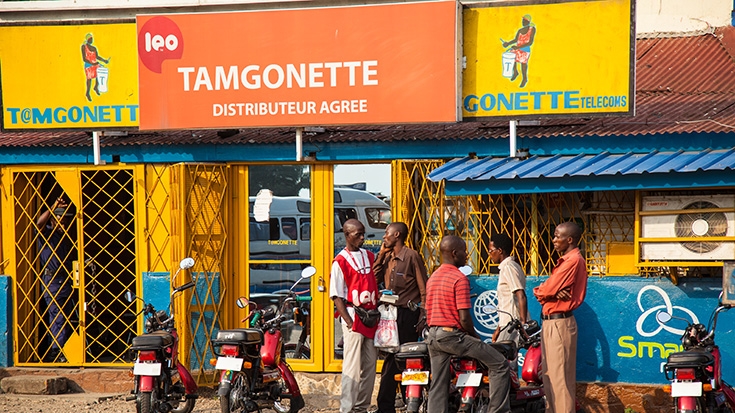Bujumbura, December 19, 2013 — Burundi, a small, landlocked country in the Great Lakes region of Africa, is one of the most aid-dependent countries in the world.
Since the end of the civil war that ravaged the country from 1993 to 2005, economic growth has been slower than expected, with the country’s GDP growth averaging 3.9 percent in the past three years. And Burundi has yet to experience the same economic boom as other post-conflict and neighboring countries in the East African Community (EAC), such as Uganda in the early 1990s and Rwanda in the early 2000s.
The Burundi Public Expenditure Review, a new report from the World Bank, underlines the need for the country to mobilize additional domestic revenues to face future external shocks, such as the downward trend in development aid and the price volatility of coffee and tea, the country’s main exports. While external aid is in decline, it still represents about half of the government budget.
Titled “Strengthening Fiscal Resilience to Promote Government Effectiveness,” the report, produced in partnership with the Burundian Ministry of Finance and Economic Development Planning, points out that with a population growth of 3 percent and weak GDP growth, the country won’t be able to improve the lives of its 9.9 million people without adopting key policy reforms.
“Burundi has made some significant progress in implementing policies that benefit the poor but the economy remains vulnerable to external shocks, including food and energy prices fluctuations, climate change and declining aid transfers,” said Rachidi Radji, the World Bank Country Manager for Burundi. “Better governance and greater transparency in the management of public finances will be critical to increase the country’s fiscal space and promote efficiency in government spending. This in turn is expected to benefit the citizens and the economy of Burundi with higher volumes of capital investments and improved public services,” he added
While the agricultural sector represents one-third of the country’s GDP and employs more than 90 percent of the workforce, domestic production cannot meet the country’s needs. And although the country possesses five percent of known world reserves of nickel, a source of potential growth, Burundi’s mineral resources remain largely untapped. Priority actions include improving agricultural productivity and maximizing the growth potential of future mining revenues.
The Public Expenditure Review highlights some important progress in the government’s efforts to improve its fiscal policy. Revenue collection has improved significantly since the creation of the Office burundais des recettes in 2009 (the first semi-autonomous tax administration in francophone Africa) and the introduction of a VAT tax the same year, the report notes. However, tax exemptions are on the rise and should be gradually reduced.
“On the fiscal front, Burundi doesn’t have much room to maneuver. The authorities should therefore persist in their efforts to implement fiscal reforms, widen the tax base, and reduce unnecessary tax exemptions and subsidies,” said Marco Larizza, World Bank task team leader and the lead author of the report.
The Public Expenditure Review also highlights the need to control the size of the wage bill while promoting measures to improve civil service performance. In Burundi, salaries and subsidies remain the single largest item in the national budget. However, the report points out, no coherent policies exist that guide pay increases, the size of the public workforce or job promotions.
Immediate steps should thus be taken to strengthen human resource management systems within the public administration.
